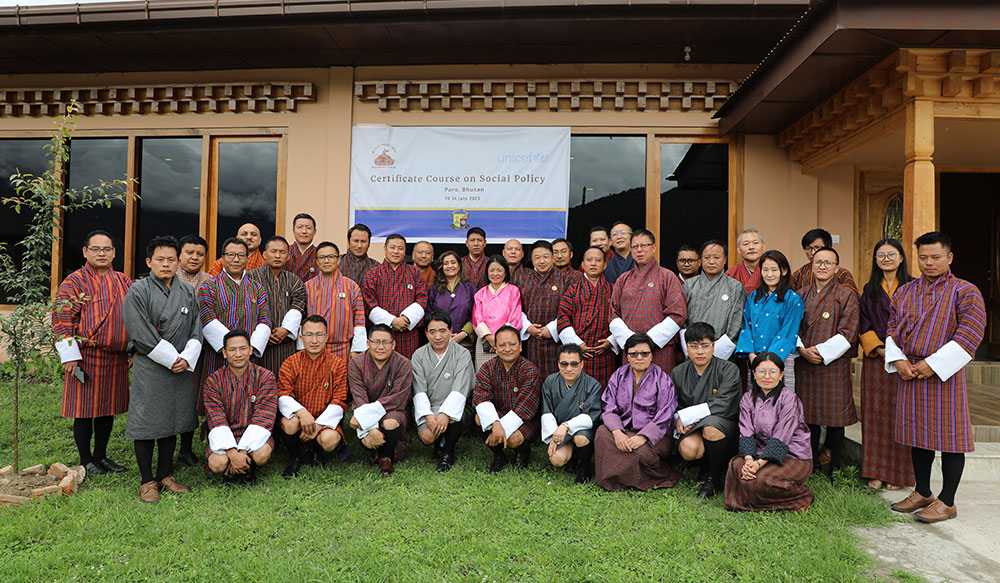KP Sharma
To enhance the parliamentarians’ understanding and communication of the importance of social policy within their legislative responsibilities, the members of the National Council and secretariat officials attended a five-day course on social policy that was held from July 10 to 14 in Thimphu.
Social policy is aimed at preventing or protecting all people against poverty, vulnerability, and social exclusion throughout their life course, with a particular emphasis towards vulnerable groups.
The course includes a wide range of topics including the conceptual understanding of social policy, the analysis framework for social policy as well as specific policies such as social protection, the importance of investing in children for human development, labour dynamics, growth, equity, and inclusion.
It also includes emerging technologies, the budgeting process, the macroeconomic outlook, and the organisational and structural framework of the state machinery, a joint press release from Sherubtse College and UNICEF Bhutan states.
The course incorporates sessions on public engagement, communication, and negotiation skills necessary for evidence-based, consultative policy formulation, enactment, and effective implementation.
These skills are aimed at safeguarding the interest of children, women, and the most vulnerable sections of society.
Sangay Dorji, the chairperson of the National Council said that the certificate course on Social Policy will definitely help the members in fulfilling their roles and responsibilities more effectively and efficiently.
“The themes selected for this course are so pertinent that they have deepened our grasp of the criteria for identifying social and public issues as well as how to prioritise them for legislation, rules, and regulations,” the Chairperson said.
Pemagatshel NC member, Jamyang Namgyal, said that the course serves as a platform for fostering collaboration between politicians and academicians that enables them to make well-informed decisions. He said that it also provides an opportunity for a meaningful civil discourse on a variety of social issues and possible solutions.
The Dean of Academic Affairs of Sherubtse College, Sonam Dendup expressed his satisfaction in contributing to a learning and development culture that addresses societal challenges and promotes the well-being of children through the participation of lawmakers.
According to Jigme Dorji, a social policy specialist at UNICEF Bhutan, the course is important for parliamentarians as it emphasises the need to prioritise investment in children as the fundamental element of human development in Bhutan.
The course that was initially launched with the assistance of external resource persons is now collaboratively developed and facilitated by lecturers from Sherubtse College, along with representatives from the National Council, Ministry of Finance, the National Statistical Bureau, the Royal Institute for Governance and Strategic Studies, and UNICEF Bhutan.


